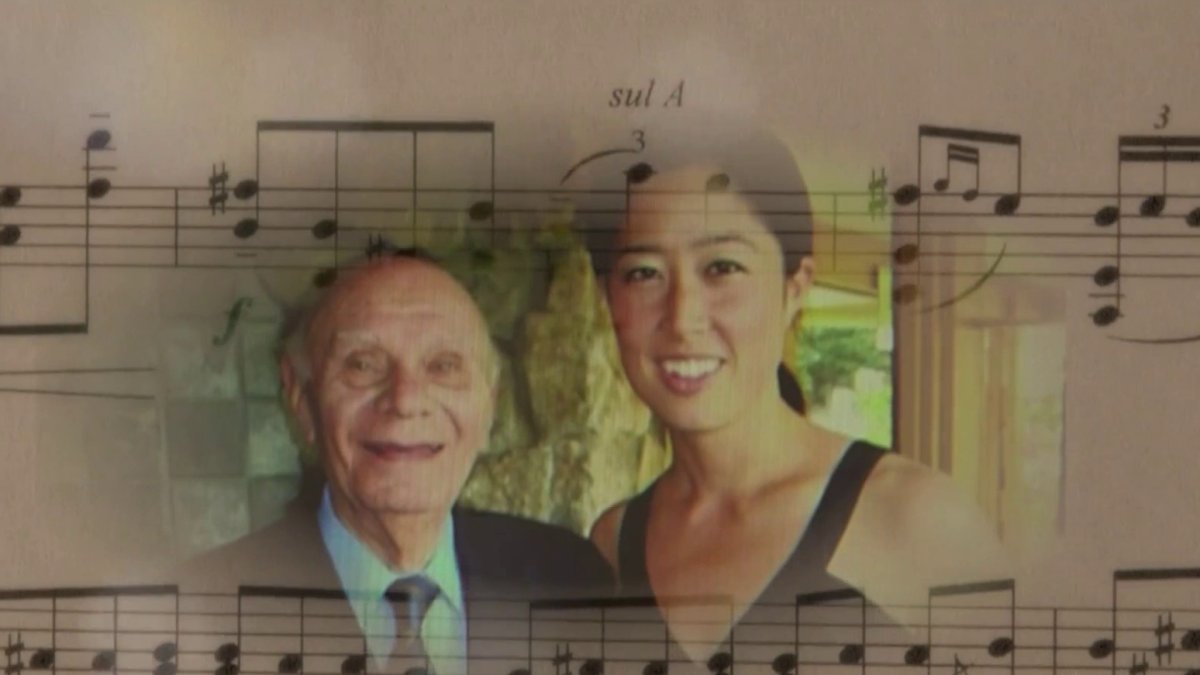
Rebecca Jackson-Picht urged the bow across her violin strings, emitting a cascade of tones veering from mournful moans to bursts of staccato chaos -- a tune she commissioned in homage to her late violin teacher, David Arben.
The composition titled Hope, stands as a fitting musical synopsis of Arben's life, a Polish Jew who survived numerous Nazi concentration camps -- which claimed the lives of his entire family --- and took comfort in his violin during a long career in U.S. orchestras.
For Korean American Jackson-Picht, music and friendship wove a cross-cultural connection to Arben, devoting much of her recent years to a one-woman performance paying homage to her musical mentor who died in 2017.
"It’s such a great example of how music is a bridge across cultures," Jackson-Picht said in the practice room of her San Jose home. "It connects humanity in a way I don’t think anything else does."
Get Southern California news, weather forecasts and entertainment stories to your inbox. Sign up for NBC LA newsletters.
Jackson-Picht grew up in Santa Cruz -- her first musical memories were of listening to her Korean grandmother singing Korean folk songs. She wasn't yet 5-years-old when she started violin lessons - her memories don't include a time when the violin wasn't part of her life.
She first encountered Arben at a music camp where she was struck by his rapt dedication to helping aspiring musicians. After the camp she sent a thank you card to Arben's home in Philadelphia, where he spent 34 years as a member of the Philadelphia Orchestra. The letter touched-off a friendship.
U.S. & World
News from around the country and around the globe
"If you’re fortunate, someone will come into your life and have a profound impact," Jackson-Picht said. "For me that person was definitely David Arben."
When Jackson-Picht attended the Juilliard School of music in New York, she frequently took a Greyhound Bus to Philadelphia to study with Arben. The lessons lasted hours, followed by long strolls and meals around Philly. That's where Arben's life-story began to unfurl; the painful details of his time in concentration camps -- how he'd narrowly avoided death when a guard plucked him last-minute from a group of camp prisoners chosen for execution - because he'd seen the boy play violin and declared a need for his virtuosity.
"He attributes the violin and the love of his family saving his life," Jackson-Picht said.
The friendship endured after she returned to California and began performing professionally with organizations like the San Francisco Ballet. Fifteen years ago, when Jackson-Picht organized the Music In May chamber music festival in her hometown of Santa Cruz, she honored Arben with a newly commissioned piece by Polina Nazaykinskaya called Haim.
During one of the performances, a pianist suggested Jackson-Picht document Arben's story, which inspired her and her father John Jackson to write the biography Arben; David Arben's Life of Miracles and Successes. It came out two years after Arben's death at the age of 89.
But Jackson-Picht's devotion to her mentor didn't end there. She created a one-woman performance to share Arben's story through solo violin playing, storytelling and visual projections.
"We took that program into schools, community centers, churches, synagogues -- basically anywhere they would have us," she said, "so we could share the life of David Arben."
From her practice room, flanked by a poster from one of Arben's orchestral performances, Jackson-Picht plunged her bow into a deep musical exorcism of Hope, another Nazaykinskaya piece she commissioned for Arben. The title takes its title from one of Arben's many sayings; "music is hope, music is peace."
Just as the violin became young Arben's family following the death of his entire family in the Holocaust, Jackson-Picht became part of his familial constellation in his later years. It's a friendship that stretched across cultural lines in the grand tradition of the great melting pot.
"He’s such an extraordinary individual I don’t want to just reap the benefits of his life and story teaching me, inspiring me," Jackson Picht said. "I want to share that with other people."